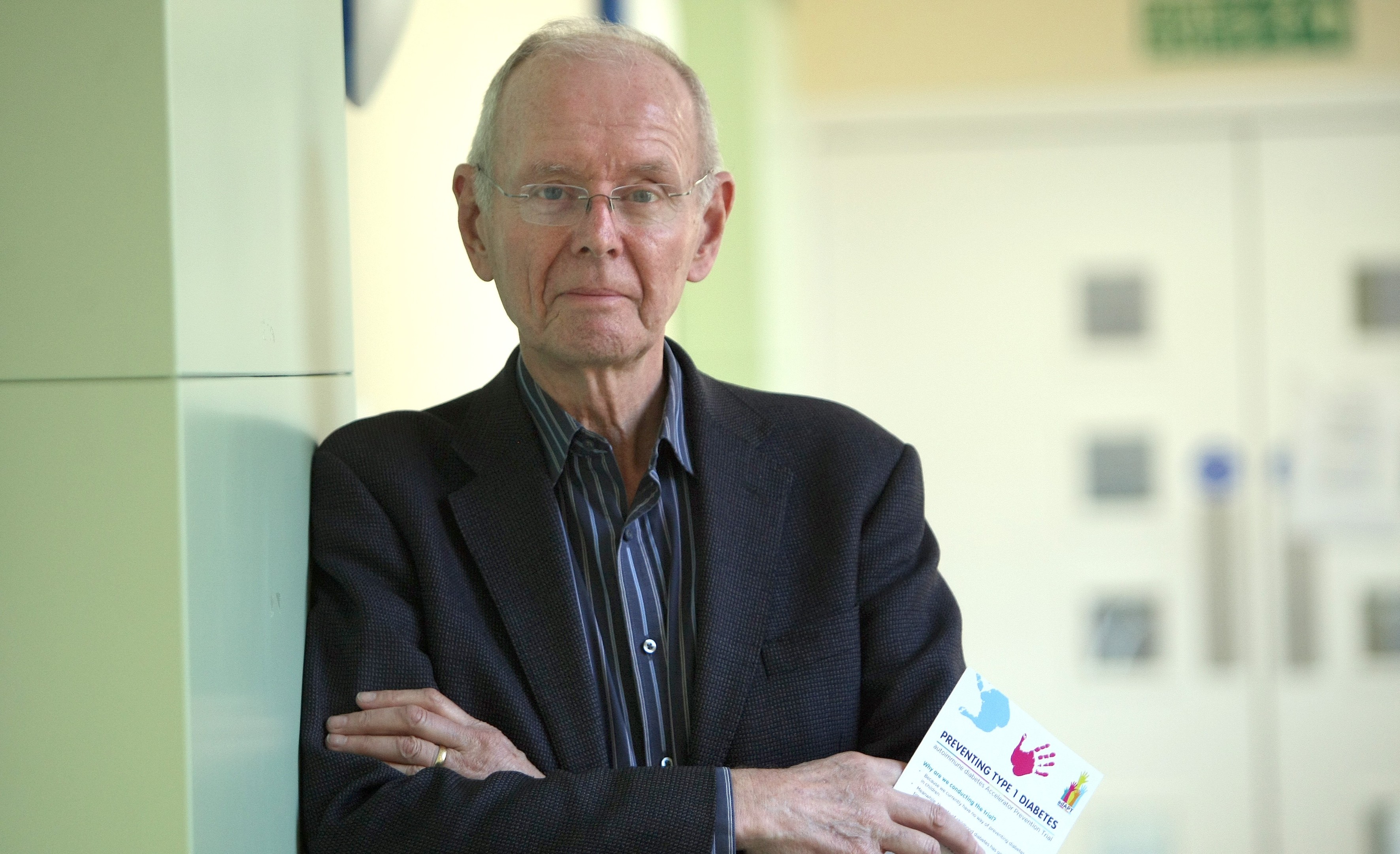Scientists are hoping for a breakthrough in the prevention of type 1 diabetes with the launch of a new trial.
Children in Scotland – the country with the third highest rate of type 1 diabetes in the world – will take part in the study that aims to develop a cheap treatment to prevent the disease.
Researchers aim to contact all 6,400 families north of the border affected by type 1 diabetes and invite children aged five to 16 to take a simple blood test to see if they are at risk of developing the condition.
If they are found to be at risk, they will be invited to take part in the clinical trial using the drug metformin – the world’s most commonly prescribed diabetes medicine.
If successful, the large-scale trial could explain why the incidence of type 1 diabetes has risen five-fold in the last 40 years and provide a means of preventing it.
The autoimmune diabetes Accelerator Prevention Trial (adAPT) is led by Professor Terence Wilkin, of Exeter University Medical School, with support from colleagues at the Dundee University and NHS Tayside.
* For more on this story, see Wednesday’s Courier
Researchers have previously hypothesised that type 1 diabetes is an autoimmune disease caused by a faulty immune system which attacks and destroys insulin-producing beta cells in the pancreas.
Clinical trials have tried drugs that suppress the immune system to attempt to subdue the attack, but the results have been disappointing.
This trial is the first to test an alternative explanation for type 1 diabetes, and is based on the accelerator hypothesis, proposed in 2001 by Prof Wilkin.
This hypothesis theorises that autoimmunity occurs as a response to damaged beta cells.
It believes that beta cells, stressed by being made to work too hard in a modern environment, send out signals that switch on the immune system.
adAPT will test whether metformin, which is known to protect beta cells from stress, can stop the immune response that goes on to destroy them.
Prof Wilkin said: “We still have no means of preventing type 1 diabetes which, at all ages, results from insufficient insulin.
“We all lose beta cells over the course of our lives, but most of us have enough for normal function.
“However, if the rate of beta cell loss is accelerated, type 1 diabetes develops, and the faster the loss, the younger the onset of the condition.
“The accelerator hypothesis talks of fast and slow type 1 diabetes – beta cell loss which progresses at different rates in different people, and appears at different ages as a result.”
It is thought that 80,000 children develop type 1 diabetes worldwide each year. There is no way of preventing childhood diabetes in children and no cure, meaning type 1 diabetes patients face strict dietary controls and multiple daily injections of insulin for life.
In the trial, each child will receive metformin or placebo initially for four months, during which they will be tested three times to assess how their metabolism and immune system respond.
The first stage of the project will assess safety and whether the trial design works, whether the medication can reduce beta cell stress, and how many participants will be needed to progress the study.
If the trial medication is found to lower beta cell stress effectively, the children in stage 1 will progress into the next stages of the trial.
“It is possible that a modern environment accelerates the loss of beta cells by overworking and stressing them,” said Prof Wilkin.
“As a consequence, this could be contributing to the rising incidence of type 1 diabetes, which is appearing in ever younger age groups.
“adAPT will use a medication to protect the beta cells from the stress, so that they survive longer.
“If successful, the trial will offer a means of preventing type 1 diabetes with a cost-effective medication, and could be made immediately available to children at risk.”
Prof Wilkin is carrying out the research in collaboration with Professor Stephen Greene, of Dundee University, and the Tayside Clinical Trials Unit.
Tayside is the first centre to start recruitment for adAPT, but the study will roll out to the other 10 health boards in Scotland before crossing into England.
To take part in the trial visit adaptdiabetes.org.





